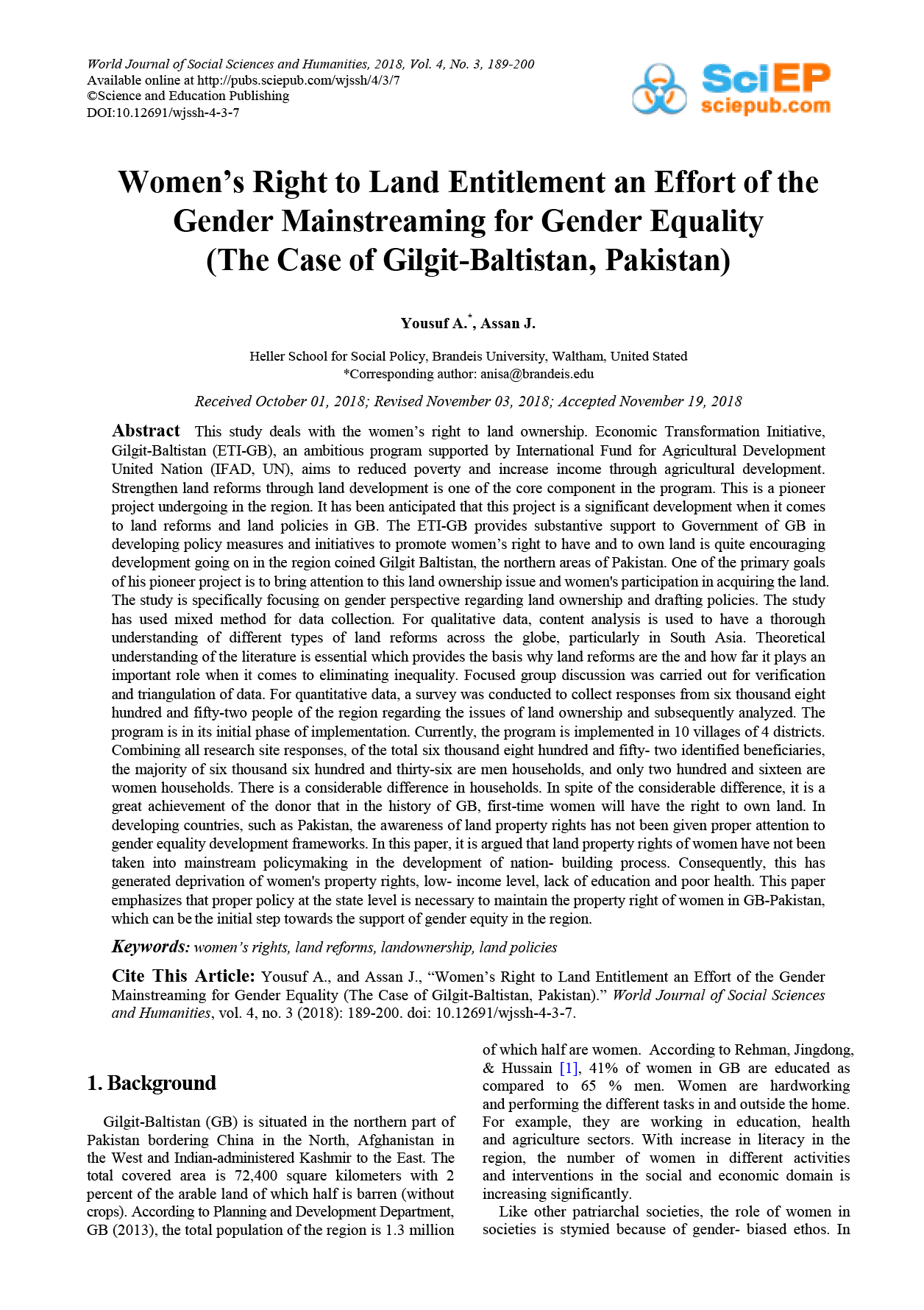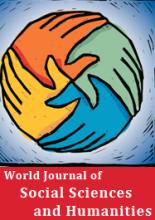Resource information
This study deals with the women’s right to land ownership. Economic Transformation Initiative, Gilgit-Baltistan (ETI-GB), an ambitious program supported by International Fund for Agricultural Development United Nation (IFAD, UN), aims to reduced poverty and increase income through agricultural development. Strengthen land reforms through land development is one of the core component in the program. This is a pioneer project undergoing in the region. It has been anticipated that this project is a significant development when it comes to land reforms and land policies in GB. The ETI-GB provides substantive support to Government of GB in developing policy measures and initiatives to promote women’s right to have and to own land is quite encouraging development going on in the region coined Gilgit Baltistan, the northern areas of Pakistan. One of the primary goals of his pioneer project is to bring attention to this land ownership issue and women's participation in acquiring the land. The study is specifically focusing on gender perspective regarding land ownership and drafting policies. The study has used mixed method for data collection. For qualitative data, content analysis is used to have a thorough understanding of different types of land reforms across the globe, particularly in South Asia. Theoretical understanding of the literature is essential which provides the basis why land reforms are the and how far it plays an important role when it comes to eliminating inequality. Focused group discussion was carried out for verification and triangulation of data. For quantitative data, a survey was conducted to collect responses from six thousand eight hundred and fifty-two people of the region regarding the issues of land ownership and subsequently analyzed. The program is in its initial phase of implementation. Currently, the program is implemented in 10 villages of 4 districts. Combining all research site responses, of the total six thousand eight hundred and fifty- two identified beneficiaries, the majority of six thousand six hundred and thirty-six are men households, and only two hundred and sixteen are women households. There is a considerable difference in households. In spite of the considerable difference, it is a great achievement of the donor that in the history of GB, first-time women will have the right to own land. In developing countries, such as Pakistan, the awareness of land property rights has not been given proper attention to gender equality development frameworks. In this paper, it is argued that land property rights of women have not been taken into mainstream policymaking in the development of nation- building process. Consequently, this has generated deprivation of women's property rights, low- income level, lack of education and poor health. This paper emphasizes that proper policy at the state level is necessary to maintain the property right of women in GB-Pakistan, which can be the initial step towards the support of gender equity in the region.


